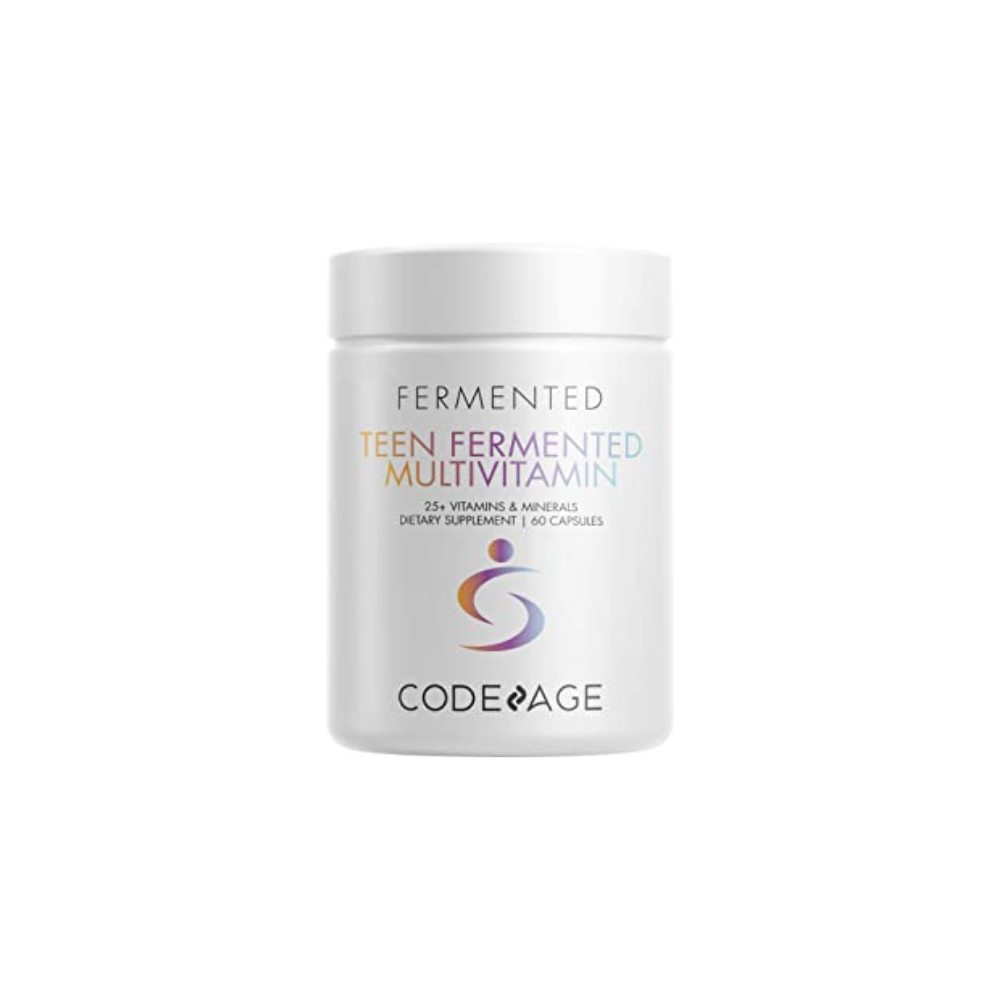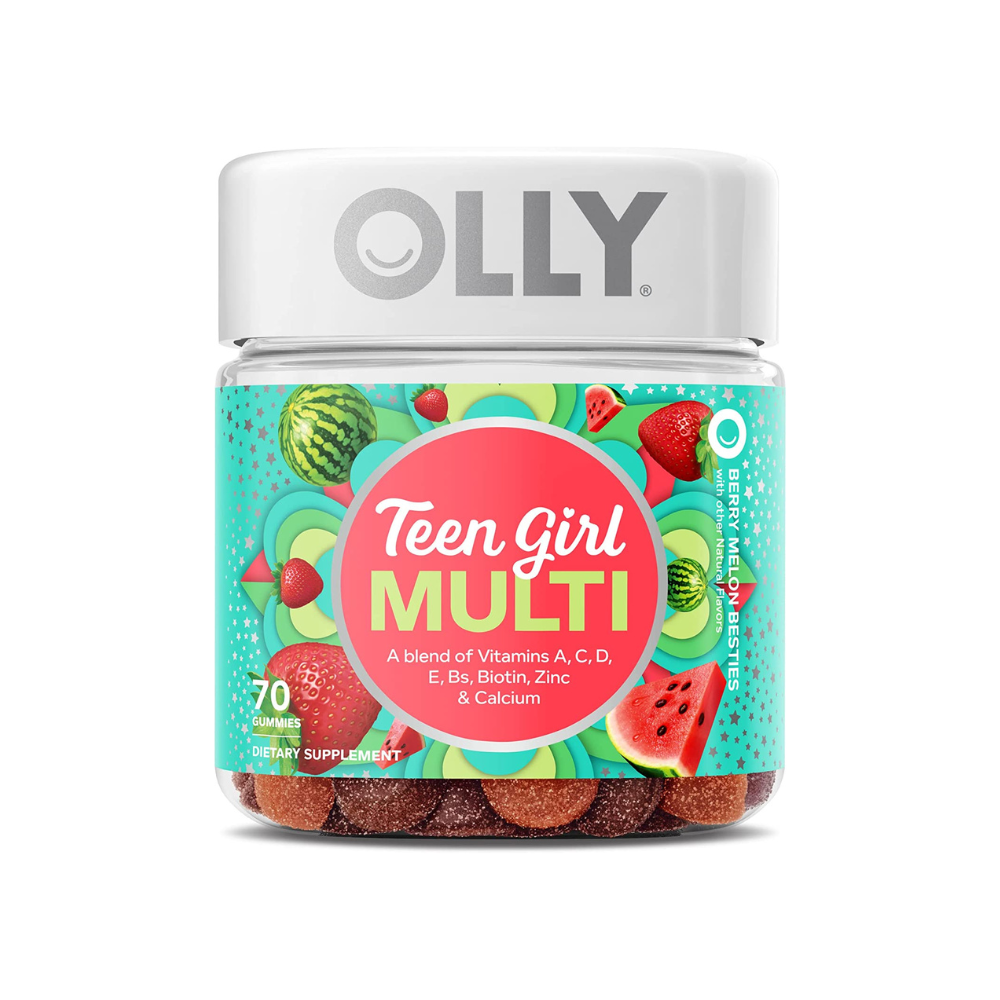Best Vitamins for Teens: A Comprehensive Review
Teenagers need extra nutrients to support optimal growth and development. Read on to see the top multivitamin for teens in 2022.

Teenagers have a whole lot going on in their bodies, and it can be difficult to make sure they're getting all the vitamins and minerals they need in their diet. During the teenage years, growth spurts, pubertal changes, and managing some big emotions can be tough for teenagers.
Nutritional supplements provide basic nutrients for optimal health and function that you may not get from your food.
Best Multivitamins For Teens
All of the vitamins listed below are vegan, so they're the best multivitamin supplements for vegetarians and meat-eaters alike. All of them support rapid growth and overall wellness, and many of them contain no common allergens.
What To Look For
There are so many different types of vitamins for kids on the market, but it can be difficult to know which ones are best for them.
Here are some things you should be looking out for when shopping for vitamins for your teen, and how they will work with a healthy diet to help your teen be healthier, have better energy levels, and reach their optimal growth.
- Vitamin A helps with eye health, skin health, heart health, and tissue repair.
- Vitamin B12 helps with energy production, metabolizes fats and proteins, and vitamin A helps blood cell production.
- Calcium helps with maintaining healthy bone and maintains muscles/nerve strength.
- Zinc helps prevent infections, illnesses, and aids in healing when applied topically.
- Vitamin C boosts your immune system.
- Vitamin D supplement helps with immune function, bone health, and calcium absorption.
- Iron is for the production of red blood cells and brain function. It helps stimulate muscle growth, but it's especially good for the iron deficiency caused by menstruation in teenage girls.
- Folate or Folic Acid is important for growth spurts because it aids metabolism and new cellular production.
Code Age is specifically formulated for teenagers between the ages of 12 and 18 of any gender. They contain 25+ of your teenager’s needed vitamins, minerals, and nutrients in a single daily capsule.
They also promote the advantages of featuring fermented organic fruit, and leafy greens, including blueberry, broccoli carrot, ginger, kale orange, and spinach as well as an extensive list of vitamin E, K2, B6, B12, magnesium, potassium, zinc, omega 3, and calcium.
These flavorless capsules are also easy to open so that your teen can add them to their favorite foods or drinks without having to worry about noticing the difference.
Smarty Pants multis have ingredients like Vitamin D3 for bone and immune health, Vitamin B12 for energy, and Omega 3 fish oil for brain health These teen multivitamin supplements are designed to specifically help improve eyesight and block harmful blue light.
If you struggle to get your teenage son to take his vitamins, these gummy vitamins from SmartyPants might be your answer. With assorted fruit flavors, it’s easy to take this first step towards better health.
Made with all premium ingredients, these gummies are designed to support the specific key nutrient needs of teenage boys. They provide a wide variety of health benefits in a mix of omega-3 fatty acids, vitamin K, D3, B12, and choline.
Olly Multivitamin for Teen Girls is delicious little gummies packed in a vibrant blend of vitamins and minerals including pantothenic acid to help girls feel they are strong, independent, and perform their best.
Multivitamin for Teen Girls contains 15 essential vitamins and minerals to nourish and energize active girls, with a special boost of antioxidants and biotin for healthy hair and nails whilst keeping them looking their best.
Naturelo believes that natural sources are better for you than synthetic ones, so you can benefit by eating whole foods in this naturally-sourcing mix of bioactive vitamins, minerals, and antioxidants.
These capsules contain vitamins A, D3 (cholecalciferol), E, K3, B6, and B12. They're a great option for your teenager.
These capsules come with an easy-to-use applicator for adding them to food or drinks if you have trouble with swallowing. They're also digested faster than regular milk and contain no additives, flavorings, preservatives, or coloring.
Is Supplement for Teens Necessary?
If your teens enjoy eating well-balanced diet with the appropriate foods (fresh fruits, fatty acids, greens, etc.), then there’s a good chance they don’t necessarily need a daily multivitamin. When our older children reach their teenage years, it becomes difficult to control what they eat for every meal.
Let's be honest. Some of us have teens who are picky eaters and refuse to eat certain foods, especially leafy green vegetables such as brussel sprouts. Your picky eaters may not be getting all of the vital nutrients they need for normal growth and development.
It can be challenging for vegetarian teens to eat the right foods, especially if they're picky eater. This often leads to B12 deficiencies. The teenage years are crucial for growth, so you must avoid any potential nutritional deficiency now.
What Vitamins Teens Should Take?
For growing teenagers, growth spurts are unavoidable, and certain nutrients will help support healthy growth and development. Vitamin deficiencies among teenagers often include Vitamin D, which may lead to rickets and bone disease.
Vitamin D is an important fat-soluble vitamin that helps keep healthy and strong bones. If your teenager isn't getting enough of this important vitamin through a balanced diet, then you may consider giving him or her a dietary supplement.
Vitamin C is an essential nutrient for the proper growth of young people, particularly for its collagen-building properties. It's a water-soluble vitamin, so it doesn't store in the body and has to be obtained from outside sources like citrus fruits, bell peppers, or supplements if necessary.
Folate or folic acid is necessary for cell division. It can be found in many foods including beans, avocado, and spinach.
B vitamins like vitamin B12 and vitamin B6 are essential for converting food into energy, and other essential nutrients that help bone health, heart health, immunity, metabolism, and muscle function.
Vitamin B6 can usually be found in plant foods like dark leafy vegetables, fish, potatoes, or chickpeas and B12 can be found in animal products like meat. If your teen follows a vegetarian diet or vegan diet, you might want to consider taking a vitamin B12 supplement.
There are plenty more important essential minerals and vitamins that provide various health benefits to older children like vitamin A, vitamin B2, vitamin E, vitamin K2, and iron. Many teens may not be getting enough vitamins from their food alone, which is why it’s important to determine which vitamin supplement is best for them.
Ingredients To Avoid In Teenage Vitamins
When choosing the best vitamin and mineral supplement for teenagers, you should always do some research on any added ingredients which aren't vitamins. You should always opt for vegan and organic vitamin supplements that are free from added sugar, artificial flavors, and synthetic colors. Here are the top things to avoid when buying vitamins for your teen:
- Yellow #5, Yellow #6, Red #40, Blue #2
- Aspartame and Sucralose
- Carrageenan and Maltodextrin
- Gelatin
- Glucose syrup, fructose, and cane sugar
- Sorbitol and Mannitol
- Artificial flavors
Frequently Asked Questions
What Vitamins Should You Take as a Teenager?
As a teenager, take vitamins C, D, E, and K2 regularly. These ingredients are commonly found in multivitamins, and when supplied in a large enough quantity, they should support healthy growth.
What Vitamin is Good for a Teenage Girl?
Vitamin B12 is a good supplement for teenage girls because it’s one ingredient needed to form new red blood cells. Once menstruation has begun, B12 should be provided in sufficient quantities. You can achieve this by taking a vitamin supplement.
What Is the Best Vitamin for Teenage Boys?
Vitamin D and K are best for teenage boys because they have been shown to help develop healthy bones and cell growth. Because boys tend to grow faster than girls during puberty, having these two vitamins in multivitamin supplements has become increasingly important.
Can Teens Take Adult Vitamins?
This depends on the individual complex blend of each vitamin, but as a general guideline, it is safest to start giving your child vitamins advertised for adult use when he or she reaches the age of 12.
Is Vitamin C Good For Teenage Skin?
Teenagers' skin also needs protection, just like adults'. Antioxidants help to protect skin from damage caused by free radicals, which are harmful substances that cause aging.
Vitamin C helps to fight pollution and gives skin a healthy glow. But having a healthy skin care regimen is always important to help prevent skin issues.
Do Vitamins Help With Puberty?
Puberty triggers lots of growth spurts and hormonal changes in your teenager which means their needs change. During this busy period of change, they will need extra doses of vitamin D, iron, calcium, zinc, and folic acid.
Vitamins play an important role during puberty as they help the body go through some rapid changes. Nutrients are needed for bones, muscles, and brains to develop in the best possible ways. Because it’d be a lot harder to ensure that a balanced diet is maintained, multivitamin supplements might help ensure that teen growth continues.
What Vitamins Help With Teenage Hormones?
Vitamin C is essential for collagen formation and helps protect your teenager's skin from free radicals. Vitamins B6, B2, and zinc will help support the balance between hormones, whereas vitamin A will help support healthy skin. Important mineral like zinc is good for hormone support.
How Much Vitamin B3/Niacin Does a Teenager Need?
Niacin is safe for most people when taken by mouth in amounts up to the UL by age. For children 14–18 years of age, the UL is 30 mg per day.
Final Thought
It’s important to remember to consult your child‘s healthcare professional if you have concerns or questions about your child’s health or well-being. They will know your child’s needs best, and may be able to offer some advice or insights into their specific recommendations too!
A good diet and a healthy lifestyle are one of the best ways to ensure your teen grows up to be a strong adult who can handle any situation.
These multivitamin supplements are not intended to replace meals, and you need to make sure there is a good variety in your children’s diet to get the most benefit from them.





